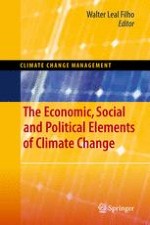2011 | OriginalPaper | Chapter
29. Managing the Ecological and Social Ambivalences of Bioenergy: Sustainability Criteria Versus Extended Carbon Markets
Authors : Felix Ekardt, Hartwig von Bredow
Published in: The Economic, Social and Political Elements of Climate Change
Publisher: Springer Berlin Heidelberg
Activate our intelligent search to find suitable subject content or patents.
Select sections of text to find matching patents with Artificial Intelligence. powered by
Select sections of text to find additional relevant content using AI-assisted search. powered by
